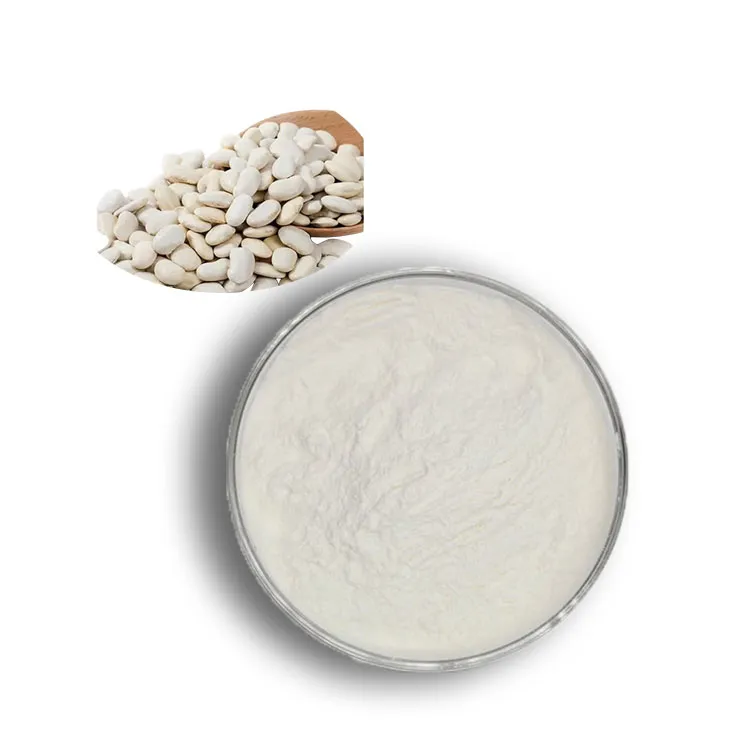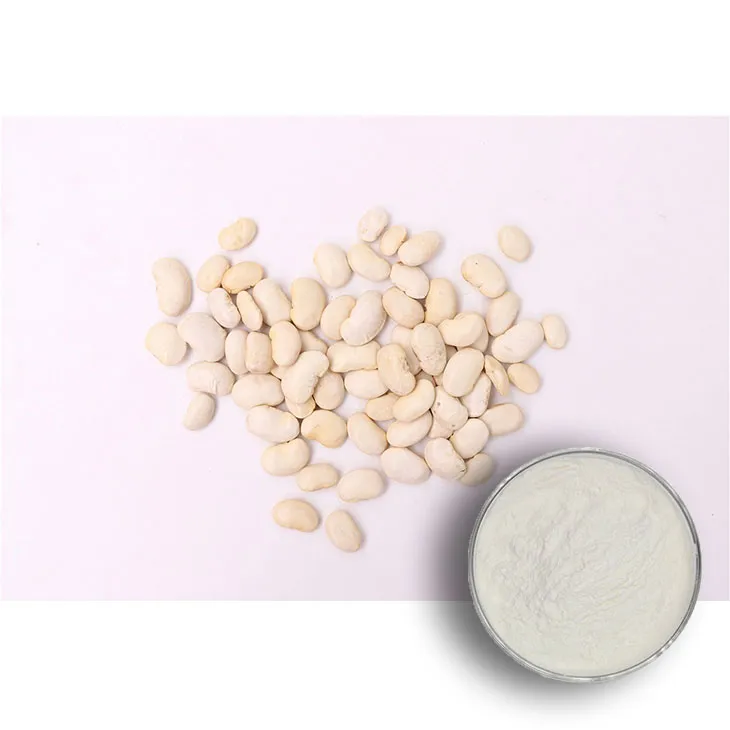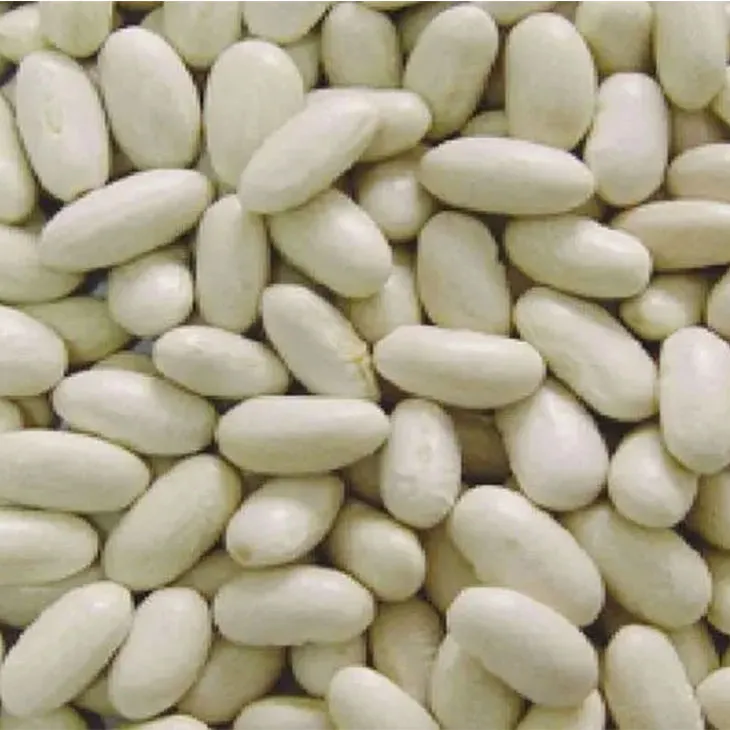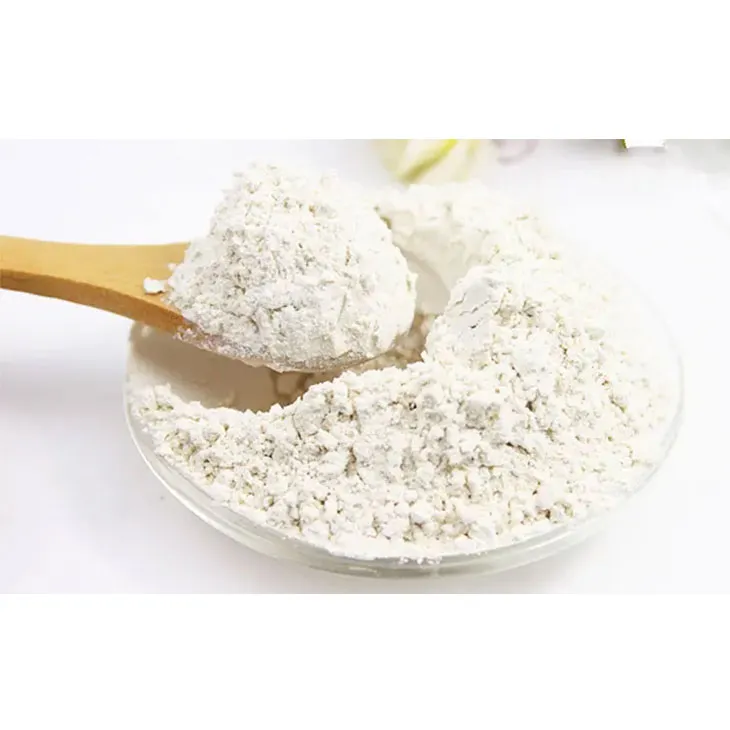- 0086-571-85302990
- sales@greenskybio.com
Kidney Bean Extracts: Their Production Methods and Reasons for Their Popularity
2024-12-21

1. Introduction
Kidney beans, scientifically known as Phaseolus vulgaris, have been an important part of the human diet for centuries. In recent years, Kidney Bean Extracts have gained significant popularity in various fields. This article aims to explore the production methods of Kidney Bean Extracts and the reasons behind their widespread appeal.

2. Production Methods of Kidney Bean Extracts
2.1. Harvesting and Selection
The first step in producing kidney bean extracts is the harvesting of high - quality kidney beans. Kidney beans are typically harvested when they are fully matured. This ensures that the beans contain the maximum amount of beneficial compounds. After harvesting, a careful selection process is carried out. Only healthy, undamaged beans are chosen for further processing. This step is crucial as it determines the quality of the final extract.
2.2. Cleaning and Preparation
Once the beans are selected, they need to be thoroughly cleaned. This involves removing any dirt, debris, or foreign particles. After cleaning, the beans are often soaked in water for a certain period. This helps in softening the beans and preparing them for the extraction process. Some producers may also choose to remove the outer skin of the beans at this stage to enhance the purity of the extract.
2.3. Extraction
There are several methods for extracting compounds from kidney beans. One common method is solvent extraction. In this process, a suitable solvent such as ethanol or water is used. The beans are soaked in the solvent, and the active compounds are dissolved into the solvent. Another method is mechanical extraction, which involves using pressure to squeeze out the juice or extract from the beans. However, solvent extraction is more commonly used in the industry as it can extract a wider range of compounds.
After the extraction process, the resulting solution contains not only the desired compounds but also other impurities. Therefore, a filtration step is necessary. Filtration helps in removing solid particles and other unwanted substances from the extract, resulting in a cleaner and more concentrated product.
2.4. Concentration and Drying
The filtered extract may still be in a relatively dilute form. To obtain a more concentrated kidney bean extract, a concentration process is carried out. This can be achieved through methods such as evaporation under reduced pressure. Once the extract has reached the desired concentration, it is then dried. Drying can be done using techniques like spray drying or freeze - drying. These methods help in converting the liquid extract into a powder form, which is more stable and easier to store and transport.

3. Reasons for the Popularity of Kidney Bean Extracts
3.1. Health - related Reasons
One of the main reasons for the popularity of kidney bean extracts is their potential health benefits.
- Weight management: Kidney bean extracts are believed to contain compounds that can help in weight loss. For example, they may contain substances that inhibit the activity of certain enzymes involved in carbohydrate digestion. This can lead to a reduction in the absorption of carbohydrates from the diet, thereby helping in controlling body weight.
- Blood sugar control: Some studies suggest that kidney bean extracts may have a positive effect on blood sugar levels. They may help in improving insulin sensitivity and regulating glucose metabolism. This makes them potentially useful for individuals with diabetes or those at risk of developing diabetes.
- Heart health: The extracts may also contribute to heart health. They may contain antioxidants and other compounds that can reduce oxidative stress and inflammation in the body. This, in turn, can lower the risk of developing heart diseases such as atherosclerosis.
3.2. Applications in the Food Industry
Kidney bean extracts also find wide applications in the food industry.
- Flavor enhancement: They can add a unique flavor to food products. The rich, earthy flavor of kidney bean extracts can enhance the taste of various dishes, such as soups, stews, and sauces.
- Functional food ingredients: In the era of functional foods, kidney bean extracts are considered valuable ingredients. They can be added to foods to provide additional health benefits. For example, they can be incorporated into breakfast cereals or energy bars to boost their nutritional value.
- Food preservation: Some compounds in kidney bean extracts may have antimicrobial properties. This makes them potentially useful in food preservation, helping to extend the shelf - life of food products.
3.3. Meeting the Demands of Modern Consumers
The popularity of kidney bean extracts also reflects the changing demands of modern consumers.
- Interest in natural products: Modern consumers are increasingly interested in natural products. Kidney bean extracts, being derived from a natural source, are seen as a more desirable alternative to synthetic additives. They are often perceived as being safer and more in line with the trend towards "clean - label" products.
- Convenience: The availability of kidney bean extracts in powder or concentrated form makes them convenient for use. They can be easily added to various recipes or taken as dietary supplements without much hassle.
- Wellness - oriented lifestyle: With the growing focus on wellness and healthy living, consumers are more likely to seek out products like kidney bean extracts that are associated with health benefits. These extracts fit well into the concept of a holistic approach to health and wellness.
- The Production and Health Benefits of Kidney Bean Extracts"
- "Kidney Bean Extracts in the Food Industry: A Comprehensive Review"
- "Modern Consumer Trends and the Rising Popularity of Kidney Bean Extracts"

4. Conclusion
In conclusion, kidney bean extracts are produced through a series of carefully controlled processes, from harvesting and extraction to concentration and drying. Their popularity can be attributed to their potential health benefits, wide applications in the food industry, and their ability to meet the demands of modern consumers. As research continues to uncover more about the properties of kidney bean extracts, it is likely that their popularity will continue to grow in the future.

FAQ:
What are the main production methods of kidney bean extracts?
There are several common production methods for kidney bean extracts. One typical method involves solvent extraction. Firstly, the kidney beans are ground into a fine powder. Then, an appropriate solvent, such as ethanol, is used to extract the active components from the powder. After that, the extract is purified through processes like filtration and concentration to obtain the final kidney bean extract. Another method may include enzymatic hydrolysis in some cases, where specific enzymes are used to break down the components in kidney beans to release the desired substances, followed by similar purification steps.
What are the health benefits that contribute to the popularity of kidney bean extracts?
Kidney bean extracts are popular in part due to their various health benefits. They are often rich in dietary fiber, which can aid in digestion and help maintain a healthy digestive system by promoting regular bowel movements. Additionally, they may contain certain antioxidants. These antioxidants can help combat oxidative stress in the body, potentially reducing the risk of chronic diseases such as heart disease and some cancers. Some components in kidney bean extracts may also play a role in blood sugar regulation, which is beneficial for people with diabetes or those at risk of developing diabetes.
How are kidney bean extracts used in the food industry?
In the food industry, kidney bean extracts are used in multiple ways. They can be used as a natural food coloring agent, providing a reddish - brown color to food products. For example, in some baked goods or meat products, it can enhance the visual appeal. They are also sometimes added to food products for their nutritional value. In functional foods or dietary supplements, kidney bean extracts are included to provide the aforementioned health benefits like fiber and antioxidant content. Moreover, in some processed foods, they can be used as a flavor enhancer or to improve the texture of the product.
Why are modern consumers interested in kidney bean extracts?
Modern consumers are interested in kidney bean extracts for several reasons. Firstly, the growing awareness of health and wellness has led consumers to seek out natural products with potential health benefits, and kidney bean extracts fit this bill. Secondly, the trend towards clean label and natural ingredients in food products has made kidney bean extracts more appealing as they are a natural source compared to some synthetic additives. Also, with the increasing prevalence of dietary restrictions and the search for plant - based alternatives, kidney bean extracts, which are plant - derived, are attracting more attention.
Are there any potential side effects of kidney bean extracts?
While kidney bean extracts offer many benefits, there can be potential side effects in some cases. Raw or undercooked kidney beans contain a toxic compound called phytohaemagglutinin. If the extraction process is not properly carried out and these toxins are not completely removed, it can cause nausea, vomiting, and diarrhea in consumers. Also, some people may be allergic to kidney beans, and in such cases, kidney bean extracts can trigger allergic reactions such as skin rashes, itching, or swelling.
Related literature
- ▶ Hesperidin
- ▶ Citrus Bioflavonoids
- ▶ Plant Extract
- ▶ lycopene
- ▶ Diosmin
- ▶ Grape seed extract
- ▶ Sea buckthorn Juice Powder
- ▶ Fruit Juice Powder
- ▶ Hops Extract
- ▶ Artichoke Extract
- ▶ Mushroom extract
- ▶ Astaxanthin
- ▶ Green Tea Extract
- ▶ Curcumin
- ▶ Horse Chestnut Extract
- ▶ Other Product
- ▶ Boswellia Serrata Extract
- ▶ Resveratrol
- ▶ Marigold Extract
- ▶ Grape Leaf Extract
- ▶ New Product
- ▶ Aminolevulinic acid
- ▶ Cranberry Extract
- ▶ Red Yeast Rice
- ▶ Red Wine Extract
-
Epimedium extract powder
2024-12-21
-
Panax Ginseng Leaf Extract
2024-12-21
-
Kelp Extract Powder
2024-12-21
-
Apricot Powder
2024-12-21
-
Chasteberry Extract
2024-12-21
-
Bamboo Leaf extract
2024-12-21
-
Shikone Extract
2024-12-21
-
Pueraria Lobata Extract
2024-12-21
-
Tongkat Ali Extract Powder
2024-12-21
-
Cocoa Extract
2024-12-21





















